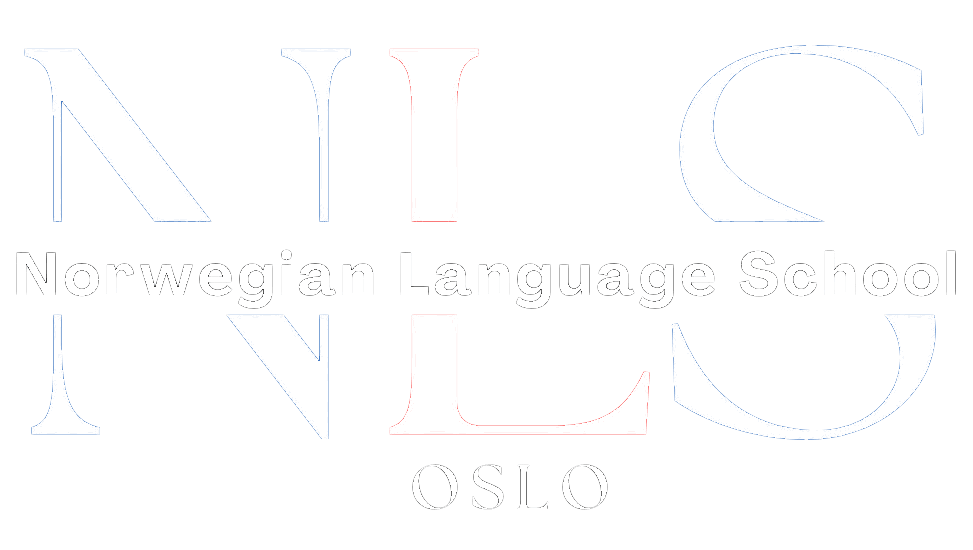

Survival Vocabulary for the Norwegian Citizenship Test
Norway is a country that offers an unparalleled quality of life, stunning natural landscapes, and a rich cultural heritage. However, gaining Norwegian citizenship is a challenging process that requires a good understanding of the language, culture, and societal norms. One crucial aspect of this process is passing the Norwegian Citizenship Test, which assesses your knowledge of the country’s history, government, and society, as well as your language skills. To help you succeed, we’ve compiled a comprehensive guide on the survival vocabulary you need to know for the Norwegian Citizenship Test. Whether you’re just starting to learn Norwegian or brushing up on your skills, this guide will be an invaluable resource on your journey to becoming a Norwegian citizen.
If you’re looking for structured and supportive learning, consider joining our Norwegian classes at NLS Norwegian Language School in Oslo. Our courses are designed to help you master the language and prepare thoroughly for the citizenship test. You can register here: NLS Norwegian Language School Registration.
Table of Contents
ToggleIntroduction to the Norwegian Citizenship Test
Before diving into the vocabulary, it’s essential to understand what the Norwegian Citizenship Test entails. The test is primarily designed to evaluate your knowledge of Norwegian society, laws, and history. It is conducted in Norwegian, so a solid grasp of the language is critical. The test covers a wide range of topics, including the Norwegian Constitution, human rights, government structure, and the rights and responsibilities of citizens.
The test also assesses your understanding of everyday Norwegian vocabulary and phrases that are essential for navigating life in Norway. While the questions may vary, they often require you to understand and interpret basic Norwegian, making a strong vocabulary foundation essential.
Essential Vocabulary for the Norwegian Citizenship Test
1. Basic Government and Political Terms
Understanding the structure of the Norwegian government and its political system is crucial for the citizenship test. Here are some essential terms:
- Regjering (Government): The executive branch of Norway, headed by the Prime Minister.
- Stortinget (The Parliament): The supreme legislature of Norway, consisting of 169 representatives.
- Statsminister (Prime Minister): The head of government in Norway.
- Kongen (The King): The ceremonial head of state in Norway.
- Grunnloven (The Constitution): The fundamental law of Norway, adopted in 1814.
- Monarki (Monarchy): Norway is a constitutional monarchy, where the king’s powers are regulated by the Constitution.
- Demokrati (Democracy): Norway operates under a democratic system where citizens elect representatives.
- Folkeavstemning (Referendum): A vote in which all eligible citizens participate in decision-making on a specific issue.
- Kommunestyre (Municipal Council): The local governing body in Norwegian municipalities.
- Stemmerett (Right to vote): The right to participate in elections, typically granted to Norwegian citizens.
2. Cultural and Historical Terms
Knowing key historical events and cultural elements is also vital:
- Eidsvoll: The place where the Norwegian Constitution was signed in 1814.
- 17. mai (17th of May): Norway’s Constitution Day, a national holiday celebrating the signing of the Constitution.
- Nasjonaldag (National Day): Another term for the 17th of May.
- Sametinget (Sami Parliament): The representative body for the Sami people in Norway.
- Vikinger (Vikings): Norse explorers, warriors, and traders from the Scandinavian region.
- Unionsoppløsningen (Dissolution of the Union): The 1905 dissolution of the union between Norway and Sweden.
- Norsk (Norwegian): The language spoken in Norway.
- Nynorsk and Bokmål: The two written standards of the Norwegian language.
- Kulturarv (Cultural Heritage): The legacy of cultural artifacts and traditions passed down through generations.
- Nobelprisen (Nobel Prize): Prestigious awards given annually in various categories, with the Peace Prize awarded in Oslo.
3. Legal and Civic Rights Terms
Understanding your rights and responsibilities as a Norwegian citizen is a major component of the test:
- Likestilling (Equality): A core principle in Norwegian society, especially concerning gender equality.
- Rettigheter (Rights): The legal entitlements granted to individuals, such as human rights.
- Plikter (Duties): The responsibilities citizens have towards society and the state.
- Ytringsfrihet (Freedom of Speech): The right to express one’s opinions without censorship.
- Religionsfrihet (Freedom of Religion): The right to practice any religion or none.
- Rettsstat (Rule of Law): The principle that all individuals are subject to the law, and that laws should be fairly applied and enforced.
- Personvern (Privacy): The right to personal privacy and protection of personal data.
- Familiegjenforening (Family Reunification): The process that allows family members of Norwegian citizens to immigrate to Norway.
4. Everyday Life Vocabulary
Navigating daily life in Norway requires familiarity with common phrases and terms:
- Arbeid (Work): A central aspect of life in Norway, with strong labor rights and a high employment rate.
- Helsevesen (Healthcare System): Norway has a universal healthcare system, which is a frequent topic in the citizenship test.
- Skole (School): Education is mandatory in Norway, with a strong emphasis on equality.
- Barnehage (Kindergarten): Early childhood education facilities, important in the Norwegian education system.
- Bolig (Housing): Understanding housing terms is crucial, especially when discussing residency.
- Skatt (Tax): Taxes are an important part of Norwegian society, funding many public services.
- NAV: The Norwegian Labour and Welfare Administration, a critical institution for welfare and employment support.
- Folketrygden (National Insurance): Norway’s social insurance system, covering healthcare, pensions, and unemployment benefits.
- Pensjon (Pension): The system that provides income to retired citizens.
- Bostedsadresse (Residential Address): Your official address in Norway, important for many administrative purposes.
5. Geographical Terms
A good understanding of Norway’s geography is often tested:
- Oslo: The capital city of Norway.
- Bergen: The second-largest city, known for its historic harbor, Bryggen.
- Trondheim: A city with a rich history, home to the Nidaros Cathedral.
- Nordkapp (North Cape): The northernmost point in Europe, a significant landmark.
- Fjorder (Fjords): Norway is famous for its fjords, which are deep, glacially formed inlets.
- Svalbard: An archipelago under Norwegian sovereignty, located in the Arctic Ocean.
- Jotunheimen: A mountain range in southern Norway, home to some of the highest peaks in Northern Europe.
- Hardangervidda: The largest mountain plateau in Europe, offering spectacular landscapes.
- Lofoten: An archipelago known for its dramatic scenery, fishing villages, and northern lights.
6. Social and Cultural Concepts
Understanding Norwegian social norms and cultural values is important:
- Dugnad: A Norwegian tradition of voluntary work, often for community or neighborhood projects.
- Janteloven: A cultural concept that discourages individualism and promotes collective well-being.
- Hygge: A Danish and Norwegian word describing a mood of coziness and comfortable conviviality.
- Friluftsliv: Literally “open-air life,” reflecting Norwegians’ love for outdoor activities.
- Kjønnslikestilling (Gender Equality): A strong societal value in Norway, emphasized in various aspects of life.
- Miljøvern (Environmental Protection): Norway is committed to sustainable development and environmental conservation.
- Likhet (Equality): A principle that underpins many aspects of Norwegian society, including the welfare state.
Strategies for Learning and Retaining Vocabulary
Now that you have a list of essential vocabulary, here are some strategies to help you learn and retain these words:
- Flashcards: Create flashcards with the Norwegian word on one side and the English translation on the other. Review them regularly to reinforce your memory.
- Language Apps: Use language learning apps like Duolingo, Memrise, or Anki, which often have pre-made flashcard sets for Norwegian learners.
- Practice with Native Speakers: Engage in conversations with native Norwegian speakers. This will help you learn pronunciation and usage in context.
- Read Norwegian News: Reading Norwegian newspapers and websites can help you see how these words are used in real-life contexts.
- Take Practice Tests: Find practice tests online or in textbooks that focus on the vocabulary and topics covered in the Norwegian Citizenship Test.
- Join a Norwegian Language Class: Structured classes, like those offered at NLS Norwegian Language School in Oslo, can provide guided learning and practice. Sign up for our classes here: NLS Norwegian Language School Registration.
Conclusion
Passing the Norwegian Citizenship Test is a significant milestone on the path to becoming a Norwegian citizen. A solid understanding of the key vocabulary related to government, culture, society, and everyday life in Norway is essential for success. By familiarizing yourself with the words and concepts outlined in this guide, you’ll be well-prepared to tackle the test with confidence.
Remember, mastering Norwegian is not just about memorizing words; it’s about understanding the culture and the way of life in Norway. Engage with the language regularly, immerse yourself in the culture, and take advantage of the resources available to you, such as language classes and practice materials.
If you’re serious about passing the Norwegian Citizenship Test, enrolling in a dedicated language course can make all the difference. At NLS Norwegian Language School in Oslo, we offer classes specifically designed to help you achieve your language goals and succeed on the test. Don’t hesitate to sign up today: NLS Norwegian Language School Registration. Your journey to becoming a Norwegian citizen starts with mastering the language, and we’re here to help you every step of the way.

Norwegian A1-A2
Course Overview The Norwegian A1-A2 course is an online program focused on teaching essential Norwegian grammar and vocabulary. It includes a variety of materials and topics, with opportunities to interact with a Norwegian teacher entirely online. Curriculum Highlights The course covers key areas such as grammar and vocabulary and topics such as family, daily life, education, work, traditions, and leisure activities. Who Should Enroll? This course is perfect for beginners or those at the A1 or A2 levels who want to improve their Norwegian skills. What You Get Access to the full Norwegian A1-A2 course. A monthly 1-hour online conversation with a teacher. Many written and oral assignments. Comprehensive information on Norwegian grammar, Norwegian vocabulary and how to use them, important sentence structures, etc. Tips on additional resources to further enhance your Norwegian learning.
0 students enrolled
Last updated Dec 10th, 2024
If you want to learn Norwegian, you can register for classes here. We look forward to hearing from you and helping you become fluent in Norwegian.





